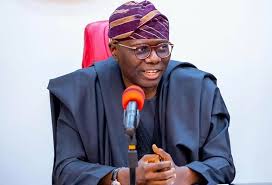The Nigerian real estate sector is dominated by informal property holdings valued at nearly one trillion dollars. Harnessing the untapped potential could give the economy a major boost.
“Nigeria holds no less than USD 300 Bn and as much as USD 900 Bn worth of ‘dead capital’ in residential and agricultural real estate alone”, said PricewaterhouseCooper.
That was the conclusion drawn up by world-renowned consulting and advisory firm, PricewaterhouseCoopers (PwC) after their deep dive into the neglected parts of Nigeria’s real estate sector.
It was a startling revelation and it easily got tongues wagging both for and against the numbers submitted by the firm.
But even as it would actually be quite a stretch to think they could ever get the figure spot on, the general feeling is that they are not that far from the truth — between Ikorodu in Lagos and Isihor in Edo, you would find so many undeveloped landed-assets that would’ve been enough to get one some major bank loans if only the banks were crazy about landed-assets that lack verifiable ownership proof.
Well, that’s pretty much the problem — so many landed-assets and so little economic value attached to it because the owners of the assets are just not able to see the gains of having their property duly titled. The result of this is a stockpile of dormant assets with very little to offer in terms of economic relevance.
A report by WeeTracker (WT), the mere thought of how much value could be added by harnessing this dead capital in the Nigerian real estate sector is enough to get anyone’s motor running. Ideally, it should be providing the country with the required capital resources needed to boost growth and create wealth for its 200 million-strong population.
And it cannot come at a better time given that the International Monetary Fund (IMF) recently prophesied doom by suggesting in its latest report on Nigeria that income per head will decline in the near term as economic growth continues to be outpaced by a faster population rise. Unlocking the potential in dead assets might be the antidote that could reverse the unavoidable lunge for perdition.
To make things clear, dead capital or dead assets is an economic term used to refer to properties that are informally-held, and so not legally-recognised. It is this uncertainty of ownership that takes away from the true value of the asset and the ability to lend or borrow against it.
Such possessions are not well-recorded. Because of this, they can hardly be converted to capital and cannot be exchanged for something profitable outside very niche local circles where people know and trust one another. Also, such properties cannot be used as collateral for a loan or as share against investment.



